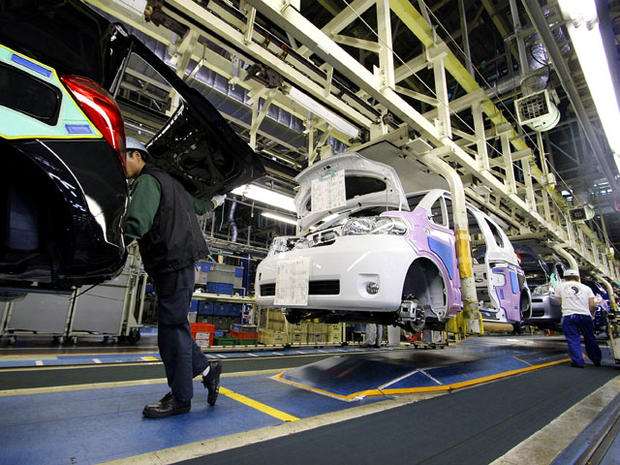Japan's automakers facing supply-line challenges
There's a lot we do not know about the impact of the Japanese earthquake on U.S. assembly and automakers.
Here's what we've been able to find out talking to a couple of people inside and out of the auto industry.
About 90 percent of all Hondas assembled in the U.S. are supplied with parts manufactured in North America. Their own people say impact on North America will be "minimal."
Toyota is much more vulnerable because a greater percentage of their vehicles are assembled with parts from Japan.
It is the same story for Nissan and its plants in Tennessee and Alabama.
Complete Coverage: Disaster in Japan
The average car has between 20,000 and 30,000 parts, and none can roll off the line "incomplete."
Japanese firms like Alpine supply navigation systems and radios to automakers around the world, so European makers may experience some supply disruptions.
"Nobody is panicking right now," one analyst told CBS News. "But it's incredible how much we do not know. On Saturday, Subaru told me they would only be closed today. Now they will be shut down until Wednesday. If these factories are down for a few weeks we could see a broader impact. "
There is slack in the supply chain. Supply ships that left Japan before the quake are still at sea. There will be a lag of two to three weeks before supply problems become evident. It's impossible to know if they will be serious enough to close US plants.
In the short term, expect tighter inventories on Japanese made models like Lexus, Infiniti, Scion, Toyota Prius and Honda Fit in the weeks ahead. U.S. assembly plants owned by Japanese companies may not see issues for several weeks.
It all depends on how long the Japanese factories stay dark and whether part suppliers in other places like Mexico can pick up the slack.
U.S. automakers could benefit if a sustained period of tight inventory pushes impatient car buyers to American brands.
